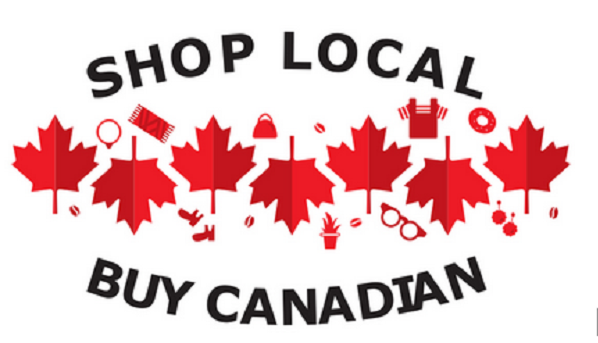Trump tariffs announcement pushes some Canadian businesses betting big on home turf
When global trade tensions began rattling supply chains, Alex Sagherian didn’t want to see how it would all shake out.
Rather than wait, Sagherian, executive vice-president of NLI International Corp., redirected his Mississauga-based firm inwards – redirecting its resources towards Canadian operations.
“It was almost immediate,” Sagherian said in a phone interview with CTVNews.ca, “The faster you can take action and lead by example, the better it is—for your people, staff and (the) companies you do work with. To give that sense of confidence that we’re going to focus more on Canada.”
NLI is a third-party logistics (3PL) company that provides distribution, warehousing, transportation, fulfillment, storage and more for companies – essentially a one-stop shop.
Following Trump’s tariff announcements, NLI invested more than $1 million into its domestic operations. That included expanding warehousing capacity in Ontario and growing its presence in B.C., as well as acquiring AAA Express, a GTA-based long-standing transport company.
Sagherian says the acquisition helps simplify services for clients and improves NLI’s ability to meet demands across Canada.
A few months ago, to help staff weather the uncertainty, NLI raised salaries by 15 per cent company-wide.
“We understand a lot of basic commodities are going to be more expensive and we want to give our staff some light at the end of the tunnel,” he said.
According to Sagherian, businesses he deals with are putting Canada first.
“Everyone’s making the framework for long, lasting relationships with Canadian companies, where in the past, that was probably outsourced to the U.S. or other countries around the world.”
“We want Canada first. We want Canadians to be stronger. We want Canadians to have more confidence,” Sagherian said.
Canadian businesses turn inward
As the Canada-U.S. trade relationship grows increasingly uncertain due to tariffs imposed under the Trump administration, a growing number of Canadian small- and medium-sized businesses are pivoting away from cross-border commerce and looking inward for stability.
“We’re seeing a drop in the confidence and optimism level,” Jasmin Guénette, vice-president of National Affairs at the Canadian Federation of Independent Businesses (CFIB), told CTVNews.ca in a phone interview.
“Many small business owners are quite worried about the future of their business, the future of their operation, and what will be the outcome,” he added.
According to CFIB’s latest survey with responses from nearly 4,000 businesses across Canada, four out of five businesses have been affected by the current trade environment. The impacts range from higher input costs to reduced customer demand, prompting many owners to rethink their strategies.
Guénette noted that businesses are also dealing with the disruption to the business climate, finding new clients and suppliers outside the U.S., and a decline in trust in the U.S. as a reliable trading partner.
Among those strategic shifts, many businesses are turning towards domestic markets. According to CFIB’s survey, 32 per cent of business owners have taken measures to shift their domestic suppliers and markets within Canada, while another 30 per cent are considering it.
But shifting to domestic markets isn’t without challenges.
“There are many barriers to food products, alcohol, and free movement of labour within Canada,” Guénette explained. “There’s also a cost associated with adding businesses in multiple provinces with licensing fees and regulatory compliance.”
al governments to adopt a principle of mutual recognition– if a product is good enough to be built and sold in one province or territory, it should be available in every other province and territory, without additional regulatory requirements.
“Instead of agreeing on all exemptions and policy, because provinces will never agree on everything, if they adopt the principle of mutual recognition, then barriers are teared down that way,” Guénette said.
Improving interprovincial trade barriers cannot and should not be something that has a best before date to it Guénette warned.
Guénette said that even trade with the U.S. stabilizes, it’s good economic policy to make sure that within Canada our businesses have the least possible roadblocks to develop and sell their products and hire people locally.
Buy Canadian
Pierre Cléroux, chief economist of Businesses Development Bank of Canada (BDC), said people should understand buying Canada has a positive impact on the Canadian economy.
Research by the BDC claims if every Canadian household allocated $25 or more per week to Canadian-made goods, it could create 60,000 jobs in Canada.
“This a pretty strong movement and I think this is going to stick around, even if tariffs are changing every day,” Cleroux said. “The impact is real.”
As consumer demand of Canadian products has surged, Cleroux says some businesses are experiencing growth.
“One of our clients, Green Beaver, they sell and manufacture personal care products, and their sales are up by 40 per cent,” he explained.
A Narrative Research poll shows there is still a strong desire to “buy Canadian” across the country.
Approximately 68 per cent of those surveyed are actively searching for Canadian products when they shop. This number is up five points since last February, when the movement to buy Canadian started gaining momentum.
Another driver of this moment is a strategic pivot in supply chain management. Cleroux says businesses are actively seeing Canadian suppliers to diversity their sources.
“Manufacturers are seeing a demand for Canadian products,” Cléroux said, adding that grocery stores are at the forefront of this pivot.
To support this movement, BDC launched the “Buy Five, High Five” campaign, which encourages Canadians to share and promote five Canadian products they love.
For businesses reconsidering their reliance on the U.S. market, Cléroux says BDC is encouraging diversification across different sectors within Canada, suggesting businesses in the auto sector may find new demand in the aerospace, shipbuilding or even nuclear industries.
With files from CTVNewsAtlantic.ca’s Jeremy Hull
This article was first reported by CTV News














